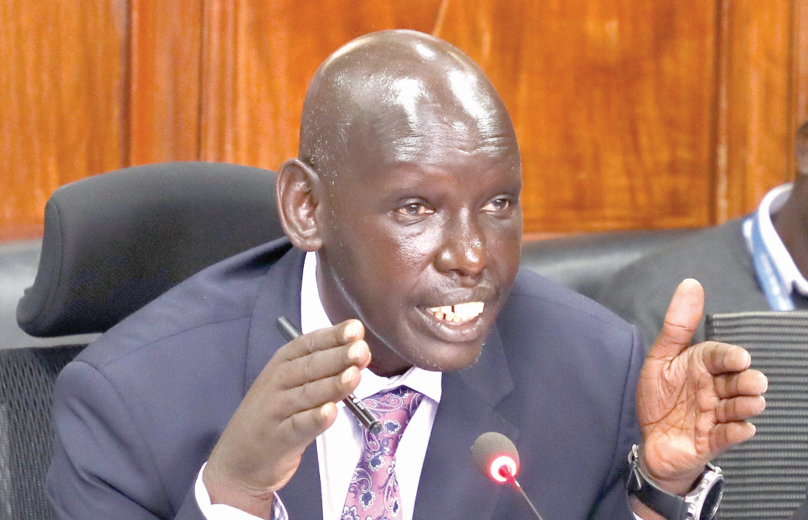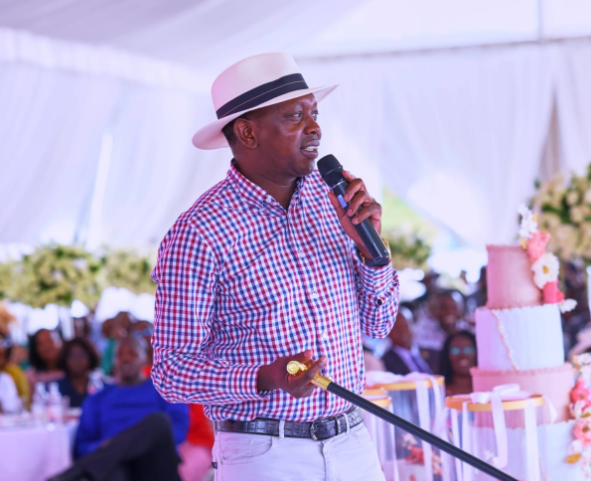Ministry moves to reduce workload for CBC learners

The Ministry of Education has reduced the number of subjects that learners will take under the Competency-Based Curriculum (CBC) starting in January.
The ministry has also reduced the number of lessons learners will take per week, according to a new circular released yesterday.
Education Principal Secretary Belio Kipsang said the Kenya Institute of Curriculum Development (KICD), in consultation with the ministry, had rationalised the learning areas from pre-primary (PP) to junior high school.
This is in line with the Presidential Working Party on Education Reforms (PWPER) report, which called for rationalisation of learning areas and curriculum designs in terms of scope and integration of subjects within learning areas, gaps, content overload and overlaps in basic education.
“Revised curriculum designs for the rationalised learning areas will be available in the KICD website from January and will be distributed to schools in the course of the first term. Guidelines on senior schools shall be released during the first term,” said Kipsang.
He made the remarks in a circular dated December 20 to all Regional, County and Sub-County Directors of Education, even as he directed them to inform primary and junior schools head teachers in their areas of jurisdiction and ensure that this is implemented when schools reopen in January.
According to the taskforce report, subjects in Pre-Primary should not exceed five while in lower primary (Grade 1-3), the subjects should not exceed seven.
In upper primary (Grade 4-6), learners should not take more than eight subjects while in junior school (Grade 7-9), subjects should not exceed nine.
Creative activities
In senior school (Grade 10-12), subjects taken should not exceed seven.
At PP1 and PP2, the PS said the subjects are currently five and will remain as they are, in line with the recommendations.
At this level, the learners will have 25 lessons per week, which include five for Language, Mathematics and Environmental Activities, respectively, six lessons for Creative Activities, three for Religious Activities and one for Pastoral/Religious Instruction programme.
At Grade 1-3 or lower primary, Kipsang said the subjects have been reduced from the current nine to seven and lessons reduced from 35 to 31 per week, including Pastoral Programme of Instruction (PPI).
Hygiene and Nutrition Activities subjects are to be integrated within Environmental Activities with four lessons per week while Creative Arts will comprise aspects of Art and Craft, Music and Physical Education with a total of seven lessons.
The level will also have two lessons of Indigenous Language Activities, four lessons of Kiswahili/ Kenya Sign Language (KSL) Activities, English Language Activities and five lessons of Mathematical Activities per week.
Co-curricular
For upper primary (Grade 4-6), subjects have been reduced from ten to eight, with the number of lessons now at 35 from the previous 40 per week, including Pastoral/Religious Programme of Instruction.
“Agriculture has been integrated with aspects of Home Science into one composite subject referred to as Agriculture and Nutrition to have four lessons per week,” the PS explained.
Creative Arts will comprise aspects of Art and Craft, Music and Physical Education wit a total of seven lessons.
Languages – Indigenous and Foreign – will be implemented on this level as non formal (co-curricular) programmes.
Others subjects at this level include Mathematics, Kiswahili/KSL, Religious Education, English Science as well as Technology and Social Studies.
At junior school, comprising Grade 7 – 9, learning areas have been reduced from 14 to nine and are compulsory.
“All the nine core subjects shall be taken by all learners,” Kipsang said.
The number of lessons has been reduced from 45 to 40 per week including PPI.
The PS said that Integrated Science and Health Education have been integrated into one learning area known as Integrated Science with five lessons per week.
Social Studies and Life Skills have been combined and will now be referred to as Social Studies with four lessons a week.
Similarly, Agriculture and aspects of Home Science have been integrated into one composite subject referred to as Agriculture and Nutrition with four lessons per week.
“Please note that there are other concepts of Home Science that have been integrated within Integrated Science and other relevant learning areas,” explained the PS.
Pre-technical Studies, Computer and Business Studies have been integrated into one composite subject referred to as Pre-Technical Studies with four lessons per week.
Senior school
Physical Education and Sports, Visual Arts and Performing Arts have been put together to become Creative Arts and Sports with five lessons a week.
Other languages – Foreign Sign Language and Indigenous – will also be implemented as non-formal programmes on this level and are non-examinable at junior school.
Other subjects on this level are English, Mathematics, Kiswahili/KSL as well as Religious Education.
The PS stated that designs and curriculum support materials will be provided to schools to guide their implementation.
“Rationalization of learning areas at senior school is ongoing, a circular on rationalized learning areas at senior school will be issued later,” the PS stated.








